Australian Pain Society NEWSLETTER







It’s that time of year again, the APS conference has come around again. Registrations are still open both for the conference and the preconference workshops. For those who have already registered, check out the conference ‘to-do’ list which will be sent out in the days before the conference. This will provide you with the information to set up your visible profile and explore the available sessions.
Also, in the virtual space are the APS 2021 Webinar series. We are starting off with our April webinar by Dr Nicholas Veldhuis on pharmacological insights that reveal mechanisms which opioid efficacy or sideeffects. Have you missed a webinar? Don’t worrythe recordings of the webinars by Prof John Cryan and Dr Janet Bultitude are now available in the members only portal of the APS site.
As 2021 is the year about global back pain, check out the top ten disparities in back pain fact sheet in this issue.
Dr Joanna Harmon
We have a great systematic review on the feasibility of patient focused behavioural interventions to support adults experiencing chronic noncancer pain during opioid tapering. The practice implications for clinicians are for a focus on optimising patient engagement to promote opioid reduction and transition to behavioural treatments of chronic non-cancer pain. While a small number of studies were found, this only serves to highlight the paucity of research in this area regarding the feasibility of these interventions. A great read, and well done to our members Ruth White, Laura Bruggink, and Chris Hayes for your contributions in undertaking this valuable and much needed synthesis of the evidence.
A friendly reminder for you all to please send the APS newsletter editorial team a short commentary or abstract from your latest article for publication. Our members are keen to hear about what their colleagues are up to and to be able to keep up to date with the latest research.
Until next time
Joanne EditorEnjoy an extensive virtual program including the pre-conference workshops, international keynote speakers, national speakers and topical sessions.
Join the many other professionals that are involved with pain and pain management and learn with clinicians and researchers across many different aspects of pain management.
The APS 2021 virtual ASM will now run from 19 - 20 April 2021, with the 4-part webinar series occurring on the last Tuesday of each month April –August (NB: there will be no webinar in June due to IASP 2021).
Pre-Conference Workshops will be held online, on Sunday 11 April 2021
From Thursday 15 April, the standard registration fee will increase to cover any “last minute” registrations. If you have been meaning to register, make sure you do it before the 15th April to save on your registration fees.
From Thursday 15 April, the standard registration fee will increase to cover any “last minute” registrations. If you have been meaning to register, make sure you do it before the 15th April to save on your registration fees.
WEBINAR SERIES
PLENARY SPEAKERS
TOPICAL SESSIONS
TRAINEE SESSION
Should you have queries, please contact the Conference Secretariat.
We can’t wait to connect with you online! We’ve put together a conference to-do list to make sure you’re fully prepared for the first APS Virtual Event.
In the days before the conference you will receive pre-event communication which includes your access to the online portal. Once you receive this, we encourage you to log in early and explore!
• Set up your visible profile
• Research all available sessions – topical, sponsored and Meet the Experts, and “star” your preferred ones to build your personalised agenda
Outside of the portal, don’t forget to:
• Ensure all outstanding balances are paid
• Add value to your attendance by adding pre-conference workshops to your registration
• Spread the word by using the APS Marketing Kit
Presenting in a virtual conference can feel like a daunting task. We have put up some tips together for speakers and chairs.
We look forward to connecting with you online!
For further information please visit the conference website.
Should you have queries, please contact the Conference Secretariat.
Get in early and secure your place at Australia’s only multidisciplinary conference offering insights into the complex nature of pain management from a variety of medical, nursing and allied health perspectives. To register please click here!
Considering the benefits of your membership?
Save on your APS 2021 registration fee!
Cost
Non-Member Registration Price VS
Becoming an APS Member
APS Student Member Registration Price
$745 OR
Being a member saves you up to $205 after membership fees!
Only $165
Being a member saves you $580 after membership fees!
Colleagues interested in becoming members and start saving on their registrations too? Tell them to become an APS Member and save right away!
You are invited to attend the Acute
This workshop will focus on back pain, from both acute and chronic pain perspectives. Topics will include; medications, surgical intervention evidence, physiotherapy interventions, gerontology management and back pain in pregnancy.
This workshop is targeted to all health care workers, nursing, allied health and medical, including GPs’.
When: Sunday 11 April 2021, 8.30am –5.00pm
Where: Virtual
For further information please click here
You are invited to attend the
This NEW workshop will discuss the best practice of pain management in the aged with adherence to the Aged Care Quality Standards Framework as well as best practice recommendations from various therapeutic frameworks e.g. RACGP, Palliative Care, National Prescribing Service.
Further, this interactive workshop will draw on the expertise of the audience, instigating multidisciplinary discussions to identify current barriers and a road map in going forward.
When: Sunday 11 April 2021, 8.30am–12.30pm
Where: Virtual
For further information please click here
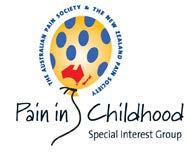
This workshop aims to provide clinicians managing persistent pain in young people with updates and practical tips. In our first session we will explore prognostic factors for pain and disability in young people at presentation, then move on to the influence of parents on outcomes in children with persistent pain. This will be followed an introduction to the framework used at Children’s Hospital Westmead for understanding the body systems that mediate stress-induced somatic symptoms, including pain.
The second session will be an interactive multidisciplinary multistate panel case presentation taking the audience through an ED presentation through inpatient assessment, formulation, and management of a complex patient in an outpatient rehabilitation model.
When: Sunday 11 April 2021, 8.30 am–12.30pm Where: Virtual
For further information please click here
You are invited to attend the Fundamentals of Pain PreConference Workshop
This workshop is a succinct overview of the physiology, clinical assessment, and management of pain. It is aimed at GP’, specialist and allied health clinicians looking for an introduction to, or update on, persistent pain management.
When: Sunday 11 April 2021, 8.30 am–12.30pm
Where: Virtual
For further information please click here
You are invited to attend the
This workshop will address topics associated with early identification and management options of low back pain. The workshop will focus on current evidence based pharmacological options in managing low back pain, exploring the safety and efficacy of current treatment options, discussing patient expectations of the role they play and the role of the clinician in rationalising their usage.
There will be opportunities for questions and networking with peers, so that current evidencebased science can be optimised in everyday practice.
When: Sunday 11 April 2021, 1.30pm–5.00pm
Where: Virtual
For further information please click here
You are invited to attend the Basic Pain Research
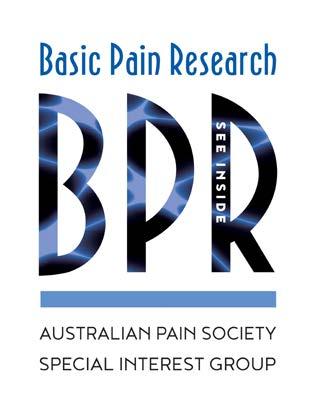
This workshop will showcase the latest in Australian basic pain research from early career and senior researchers, and provide a forum for the BPR network to discuss mechanisms of nociception and pain across all levels of investigation: from molecular and cellular analyses, to studies in animals and humans (pre-clinical or clinical). The workshop is open to all basic researchers and clinician scientists, and this year has a particular focus on studies in osteoarthritis that provide a new mechanistic understanding or reveal new targets that may support the management of inflammatory and neuropathic pain.
When: Sunday 11 April 2021, 1.30pm–5.00pm
Where: Virtual
For further information please click here
You are invited to attend the Physiotherapy in Pain Management
This workshop will be highly practical – provoking attendees to consider HOW they deliver treatment to their patients. This workshop will be immediately useful in clinical practice as we delve into how to incorporate the best psychological approaches into our own style of intervention.
When: Sunday 11 April 2021, 1.30pm–5.00pm
Where: Virtual
For further information please click here
Provided by the Australian Pain Society
NOW
Gut Feelings: The Microbiota-Gut-Brain Axis as a key Regulator of Visceral Pain
by Professor John Cryan
Neuropsychological Changes in Complex Reginal Pain
by Dr Janet BultitudeRisk stratification and targeted treatment: Effective for musculoskeletal motor vehicle crash injury?
by Professor Michele SterlingChanges in the scale of opioid consumption and cannabis in Australia by wastewater analysis
by Dr Cobus GerberAdditional information about the webinars is available at APS Webinar Website
If you have missed the previous webinars provided by the Australian Pain Society, all webinar recordings (including the Q&A) are available in the Members Only Portal of the APS website.


Not a member and wish to purchase a copy of the webinar?

Email us at apswebinars@dcconferences.com.au
*APS Webinars are suitable for Health Professionals/ Researchers only.
1. Health Disparity and Health Equity
Health disparity is defined as “a particular type of health difference that is closely linked with economic, social, or environmental disadvantage” [40]. Health equity is consequently “the absence of unfair and avoidable or remediable differences in health among population groups defined socially, economically, demographically or geographically” [38] Disparities in health outcomes have been documented both within and between countries [14; 25] and are stronger determinants of health outcomes than the quality and availability of medical care [5]
2. Disparities in back pain have been documented worldwide. A recent systematic review of social determinants of health in low back pain across 17 countries showed important associations between gender, race, ethnicity, education, occupation and socioeconomic status and important facets of low back pain (e.g., prevalence, intensity and level of disability) [14] Difference in health because of where you live or your race or gender, have important societal and economic costs
3. Race and ethnicity are not synonymous.
Race is defined as “physical differences that groups and cultures consider socially significant” while Ethnicity refers to the “shared cultural characteristics such as language, ancestry, practices, and beliefs” [1] Race and ethnicity when used interchangeably fail to capture the distinction that an individual may be of one race but can be multi-ethnic through language, culture, and religion In the presence of inequitable race relations in a society, it becomes very difficult to disentangle ethnicity from race in a meaningful way; in such cases the terms race/ethnicity are used jointly [17]
4. Racial and ethnic disparities lead to under-treatment of back pain. Racial and ethnic disparities in health care [36] persist even after adjusting for differences in accessrelated factors, needs, preferences, and appropriateness of the intervention. Specific to back pain, racial and ethnic disparities in opioid prescribing have been documented extensively in emergency departments and outpatient settings [16; 23; 26; 27] Despite racial/ethnic minorities reporting severe back pain and disability levels, health care providers were more likely to associate less severe pain to them, less likely to refer them for imaging [4] and more likely to recommend non-opioid therapy [23].
5. Racial and ethnic disparities are undermining measurement and understanding of pain experiences in various populations.
Without culturally adapted pain-related constructs, measurement, and interpretation frameworks, racial and ethnic disparities in back pain will persist. For example, application of measures not adapted for use in Indigenous communities in Australia has prevented fully capturing their pain experience [28] and consequently impacted on their pain assessment and treatment. This is important considering that in some communities for example, such as Canadian Mi’kmaq community, there is no word for ‘pain’, only expressions for ‘hurt’ [19] In this context the use of numeric or faces pain scales as descriptors for pain were perceived as lacking meaning. Efforts have been made to create
©Copyright 2021 International Association for the Study of Pain. All rights reserved. IASP brings together scientists, clinicians, healthcare providers, and policymakers to stimulate and support the study of pain and translate that knowledge into improved pain relief worldwide.


Thank you to APS members name: Ruth White1, Laura Bruggink1, Chris Hayes1 and their colleagues Allison Boyes2,3, Chris Paul2
1 Hunter Integrated Pain Service | Surgical Services, John Hunter Hospital, Newcastle, NSW 2305, Australia
2 School of Medicine and Public Health, University of Newcastle, Callaghan, NSW 2308, Australia
3 Public Health Program, Hunter Medical Research Institute, New Lambton, NSW 2305, Australia
Article first published online: 2nd March 2021
Journal Reference: Feasibility of patient-focused behavioral interventions to support adults experiencing chronic noncancer pain during opioid tapering: a systematic literature review, Translational Behavioral Medicine
DOI: 10.1093/tbm/ibab007
Link: https://academic.oup.com/tbm/ advance-article-abstract/doi/10.1093/tbm/ ibab007/6156758?redirectedFrom=fulltext
Guidelines for chronic noncancer pain prioritize behavioral treatments. In clinical practice transition from opioids to behavioral treatments is often not endorsed by patients or providers. Feasible interventions to support opioid tapering are needed, particularly in primary care. The objectives of this paper is to review the feasibility of behavioral interventions to support opioid tapering. Electronic databases (MEDLINE, Embase, PsycINFO, and CINAHL) were searched from inception to June 2019 to identify original studies reporting feasibility (consent rates; completion rates; patient-reported acceptability; integration into clinical practice; and adverse
events) of opioid tapering and transition to behavioral treatments for adults experiencing chronic noncancer pain. Google scholar and contents tables of key journals were also searched. Two authors independently extracted data and assessed methodological quality using The Quality Assessment Tool for Quantitative Studies. Eleven publications met inclusion criteria, of which three were conducted in primary care. Consent rates ranged from 27% to 98% and completion rates from 6.6% to 100%. Four studies rated at least one component of patient acceptability: helpfulness from 50%–81%; satisfaction 71%– 94%, and “recommend to others” 74%–91%. Three studies reported provider perspectives and two studies reported adverse events. Quality assessment indicated all 11 studies were moderate or weak, primarily due to selection bias and lack of assessor blinding. There was also considerable heterogeneity in study design. The limited available data suggest that attempts to translate opioid tapering interventions into practice are likely to encounter substantial feasibility challenges. One possible way to ameliorate this challenge may be a clear policy context, which facilitates and support opioid reduction.
Declaration
A.B. was supported by a National Health & Medical Research Council Early Career Fellowship (1073317).
Feasibility of patient-focused behavioral interventions to support adults experiencing chronic noncancer pain during opioid tapering: a systematic literature review, 2021
Thank you to APS member Joanne Harmon1 and her colleagues Victoria Pitt2, Peter Summons3, Kerry Inder2
1 RN, University of South Australia, Clinical and Health Sciences Unit
2 RN School of Nursing and Midwifery, Faculty of Health and Medicine, The University of Newcastle
3 School of Electrical Engineering and Computing, Faculty of Engineering and Built Environment, The University of Newcastle
Article first published online: 01/02/2021
Journal Reference: Journal reference Nurse Education Today, vol. 97
Link: https://doi.org/10.1016/j.nedt.2020.104700
To explore and map the evidence for virtual reality and artificial intelligence in simulation for the provision of pain education for pre and post registration nurses.
A scoping review of published and unpublished research from 2009 to 2019.
Nine electronic databases and hand-searching of reference lists.
Studies were included if virtual reality or artificial intelligence interventions were used for education on pain care provision in nursing. Data were extracted and charted using an extraction tool and themes were explored using narrative analysis.
The review process resulted in the inclusion of four published studies. All studies used mixed methods and used artificial intelligence within clinical simulations as an intervention. No studies using virtual reality for pain education met the inclusion criteria. Participants of three studies were undergraduate nursing students in universities and participants in the fourth study were registered nurses within a hospital. Outcomes measured were user acceptance of the technology and feasibility in all studies. The context was hospital located and focused on acute pain episodes, with one exception being sickle cell pain. Three studies had adult patients and the other pediatric patients. The exclusion of input from a patient perspective was notable, as was a lack of interdisciplinary involvement.
Conclusion
Nurses are integral to the assessment and management of pain in many care settings requiring comprehensive communication and clinical skills. There is a paucity of research on the use of virtual reality or artificial intelligence in pain education for nurses. Current studies are preliminary in nature and/or pilot studies. Further empirical research, with robust design is required to inform nursing education, practice, and policy, thereby supporting the advancement of nursing pain education.
Declaration
Joanne Harmon has nothing to declare.
The Australian Pain Society (APS) is keen to share publications from our members with their colleagues via our eNewsletter. If you’ve had an article accepted or published recently, please contact our Assistant Editor Joanne Harmon via the APS Secretariat ( aps@apsoc.org.au ) with the title, authors, and reference (i.e., journal, volume, and DOI) of your article and request the submission template. We would love it if you also supply a short commentary (300 words max) to give our readers the gist of the article.

PSYCHOLOGIST
Job Reference: N/A
Employment: Part Time
Hours per week: Flexible working hours available
Contact: Dr Geoffrey Speldewinde (Director) or Rebecca Mack (Practice Manager)
Capital Pain and Rehabilitation Clinic
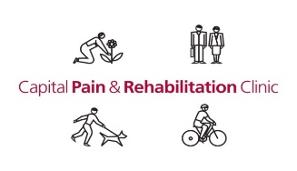
25 Napier Close DEAKIN ACT 2600
Capital Pain and Rehabilitation Clinic, Canberra, has an exciting opportunity for a Psychologist to join our longestablished Multidisciplinary Pain Clinic. The Clinic is a private practice providing high quality assessments and individual interventions to a range of clients generally with persistent pain problems. The position is part time, and hours are flexible for the successful candidate.
Please direct enquiries to Dr Geoffrey Speldewinde (Director) or Rebecca Mack (Practice Manager) on 02 6282 6240 or email: reception@capitalrehab.com.au
Annual General Meeting (AGM) will be held via Zoom video conference from 5:30 – 6:30pm AEST on Wednesday 21 April 2021
A General Business Meeting (GBM) will immediately follow the AGM. The AGM Information Pack was emailed to members and includes:
• Notice of AGM
• AGM Agenda and following GBM Agenda
• Proxy Form
• Minutes from previous AGM and GBM
• Office Bearer Nominee Information
• APS Position Statement “The role of the Psychologist in the management of pain, 3rd edition, April 2021”
The following are available on the Members only area of the APS website:
• the Financial Accounts of the APS for the year ended 31 December 2020
• the Australian Pain Society Constitution and By-Laws
If you are unable to attend the AGM please send your apology via the RSVP link sent by separate email and proxy form to the Secretariat by email to aps@apsoc.org.au by 5:30pm AEST Monday 19 April 2021.
Renewal notices for 2021 were sent by email to members in late November.
Thank you for your continued support and membership of the APS.
Please note:
1. We understand that circumstances change, so each year we ask you to select your appropriate level of membership.
2. This system of self-reporting subscription levels was implemented in 2009 for the benefit and fairness of all members.
Please refer to the rates below for your 2021 membership fee:
a. Regular A $110
b. Regular B $205
c. Regular C $310
d. Retired $65 Concessional Rate
e. Student $65 Concessional Rate
Before renewing, please ensure you review and update your member profile online.
Payments can be made by Credit Card, BPAY, or Cheque.
Do you know that the Australian Pain Society is a registered charity? Your donation will help the Society to promote the prevention and control of diseases in human beings associated with pain.
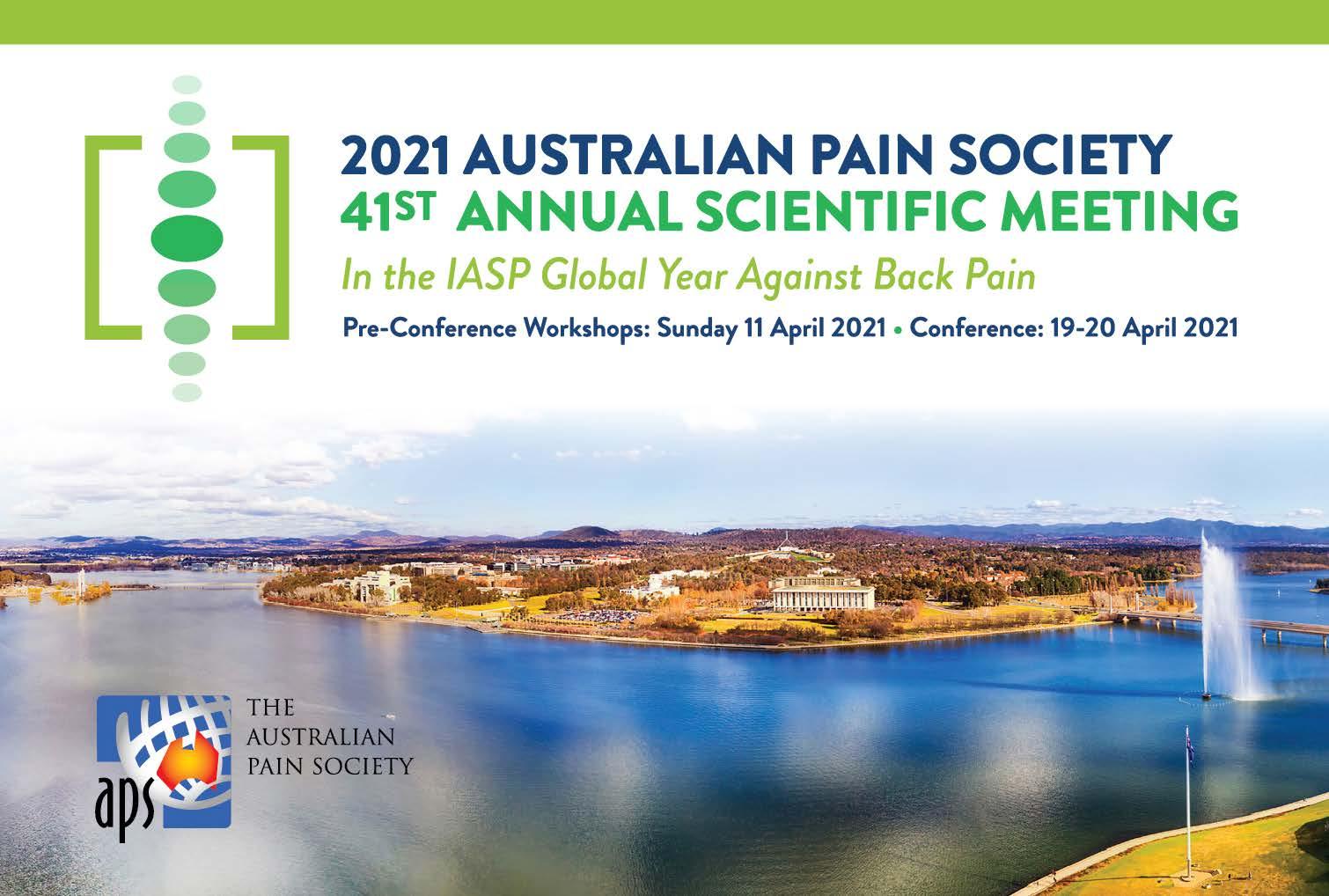


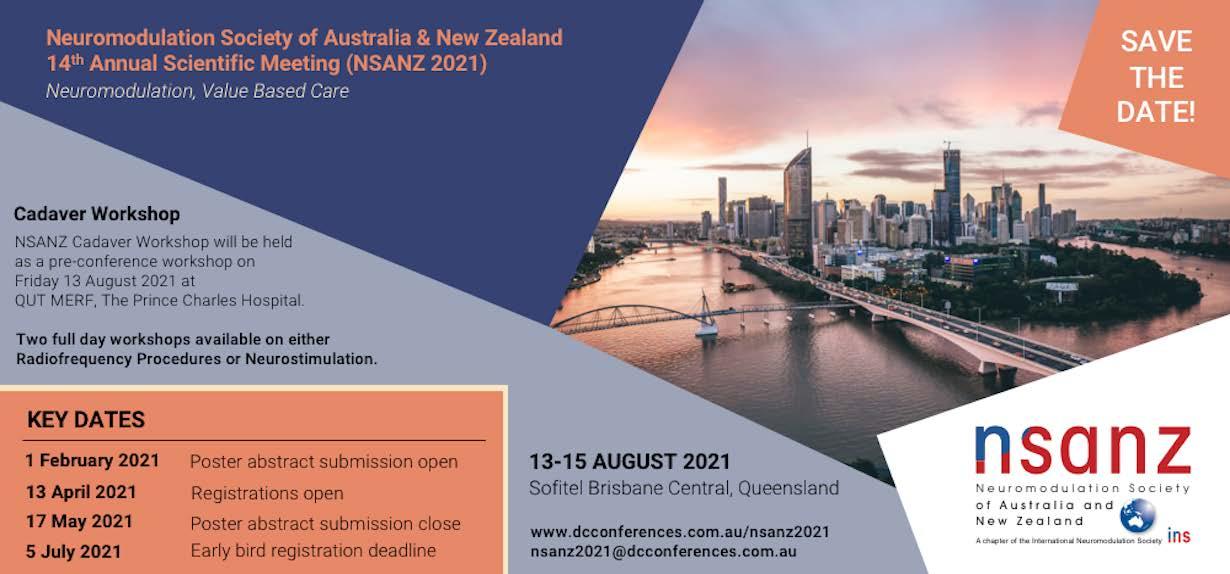
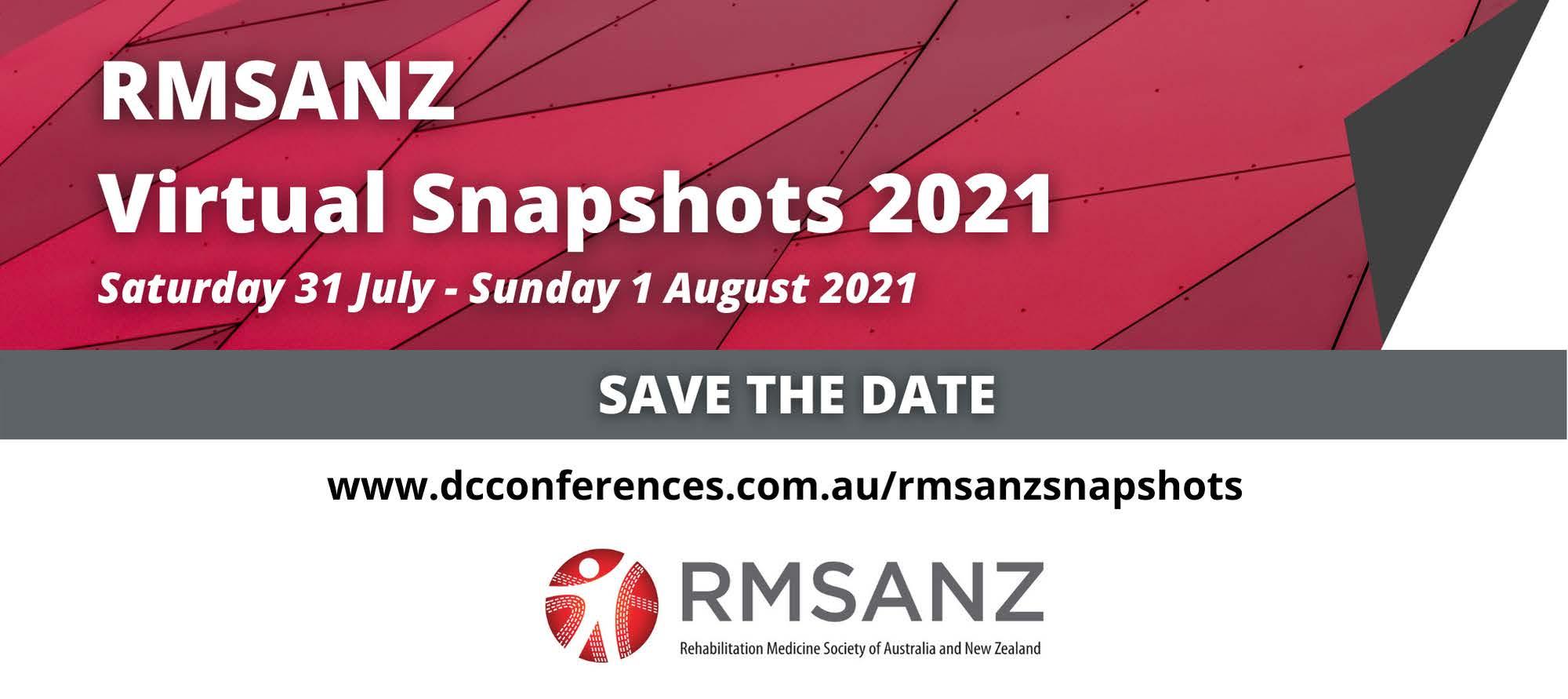




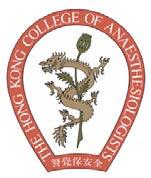
• IASP Presidential Task Force on Cannabis and Cannabinoid Analgesia. Series of articles in PAIN: https://journals.lww.com/pain/pages/collectiondetails.aspx?TopicalCollectionId=23
Other items of interest for our members:
• Latest opioid data from the Australian Bureau of Statistics: Opioid induced deaths in Australia. https://www.abs.gov.au/articles/opioid-induced-deaths-australia
• Australia’s annual overdose report 2019 from the Pennington institute: http://www.penington.org. au/australias-annual-overdose-report-2019/
• The Third Australian Atlas of Healthcare Variation: This series explores how healthcare use in Australia varies depending on where people live. It investigates reasons for variation that may be unwarranted, and provides specific achievable actions to reduce unwarranted variation https://www.safetyandquality.gov.au/atlas
• Painaustralia eNewsletter latest issue, available online at http://www.painaustralia.org.au/media/ enews
• ePPOC: electronic Persistent Pain Outcomes Collaboration: The electronic Persistent Pain Outcomes Collaboration (ePPOC) is an Australasian initiative that aims to improve the quality of care and outcomes for people who experience chronic pain. For more information about ePPOC, refer to the website: http://ahsri.uow.edu.au/eppoc/index.html
• PainHEALTH website: painHEALTH‘s aim is to help health consumers with musculoskeletal pain access reliable, evidence-based information and tips to assist in the co-management of musculoskeletal pain. painHEALTH is an initiative of the Department of Health, Western Australia. http://painhealth.csse.uwa.edu.au/
• Stanford University: CHOIR Collaborative Health Outcomes Information Registry https://choir. stanford.edu/
• Opioid Podcasts for GPs: These podcasts are produced by David Outridge GP, and FAChAM Trainee as a project under the auspices of Dr Steven Kelly Staff Specialist in Addiction Medicine, Kullaroo Clinic Gosford. A 20 week series from the Hunter Postgraduate Medical Institute (University of Newcastle): http://www.gptraining.com.au/recent-podcasts
• Airing Pain: Pain resources via an online radio show produced by Pain Concern, a UK registered Charity: http://painconcern.org.uk/airing-pain/
• Digital Health Guide: Developed by Primary Health Network Tasmania, check out the pain resources by accessing the link https://digitalhealthguide.com.au/Account/ LogOn?ReturnUrl=%2fSpecialtyFormulary%2f2 At login, Username: connectingcare, Password: health
• Indigenous Resources: New webpage on the APS website aggregating Indigenous resources: https://www.apsoc.org.au/Indigenous-Resources
• Choosing Wisely Australia – News & media: https://www.choosingwisely.org.au/news-events/mediareleases/choosing-wisely-resource-addresses-patient-opioid-knowledge-gap
• Over the counter codeine – changes to supply: https://www.nps.org.au/medical-info/clinical-topics/ over-the-counter-codeine-changes-to-supply
• Medicines with codeine – what you need to know: https://www.nps.org.au/medical-info/consumerinfo/medicines-with-codeine-what-you-need-to-know
• Information about opioids and chronic non-cancer pain: U-tube clip (5.39mins) https://www.youtube. com/watch?v=8R4RT0pUCf4&feature=share&fbclid=IwAR2dbhzgEAcc7B-ogq2a6Xhud5FDkbciPbdJ9 pb94GnQI6pAeifGd1VP-_I
• Opioids: Communications videos: https://www.nps.org.au/opioids-communication-videos
TGA
• Codeine information hub: https://www.tga.gov.au/codeine-info-hub
NSW Agency for Clinical Innovation resources:
• Brainman and Pain Tool Kit translations, SEP15: http://www.aci.health.nsw.gov.au/chronic-pain/ translated-resources
• Pain Management Resources: http://www.aci.health.nsw.gov.au/resources/pain-management
• Quicksteps to Manage Chronic Pain in Primary Care: http://www.aci.health.nsw.gov.au/chronic-pain/ health-professionals/quick-steps-to-manage-chronic-pain-in-primary-care
– Built into Quicksteps: “How to de-prescribe and wean opioids in general practice”: http://www.aci. health.nsw.gov.au/chronic-pain/health-professionals/quick-steps-to-manage-chronic-pain-inprimary-care/how_to_de-prescribe_and_wean_opioids_in_general_practice
• A list of helpful apps for consumers and clinicians now available at: http://www.aci.health.nsw.gov. au/chronic-pain/health-professionals/management-of-chronic-pain
• Chronic Pain in the ED: https://www.aci.health.nsw.gov.au/networks/eci/clinical/clinical-resources/ clinical-tools/pain-management/chronic-pain-in-the-ed
These dates and events are current at the time of publication. Due to the current health concerns with COVID-19, we recommend you make your own enquiries before planning to attend
11 April 2021
Australian Pain Society 41st Annual Scientific Meeting-Pre-Conference Workshops Acute Pain, Fundamentals of Pain, Pain in Childhood, Pain Management in Aged Care, Basic Pain Research, Pharmacology in Pain Management and Physiotherapy in Pain Management
Online https://www.dcconferences.com.au/ aps2021/Pre-Conference_Workshops
18 - 21 April 2021
Australian Pain Society 41st Annual Scientific Meeting In the IASP Global Year Against Back Pain
Online https://www.dcconferences.com.au/aps2021/
27 April - 4 May 2021
Australian and New Zealand College of Anaesthetists (ANZCA) Annual Scientific Meeting 2021 Leaps and Bounds
Online https://www.anzca.edu.au/eventscourses/events/major-events/2021-anzca-asm
30 April 2021
Faculty of Pain Medicine (FPM) Symposium 2021
Pain medicine: The mysterious art
Online https://www.anzca.edu.au/events-courses/ events/fpm-events/fpm-national-events/2020faculty-of-pain-medicine-symposium
6 - 8 May 2021
Exercise & Sports Science Australia (ESSA)
Research to Practice 2021
Online
http://researchtopractice2021.com.au
19 - 21 May 2021
Australian & New Zealand Society for Geriatric Medicine (ANZSGM)
Annual Scientific Meeting 2021
Sofitel Melbourne on Collins, Melbourne, VIC http://www.anzsgmconference.org/
21 - 23 May 2021
Australian Rheumatology Association
Annual Scientific Meeting Hybrid with Satellite Hubs
Sydney
https://www.araconference.com/
9 - 18 June 2021
International Association for the Study of Pain (IASP) IASP 2021 World Congress on Pain Online https://www.iaspworldcongress.org
23-25 June 2021
Occupational Therapy Australia
Inspired Insights for Brighter Futures - Hybrid Conference
Cairns Convention Centre, Cairns, QLD https://www.otaus2021.com.au
13-15 August 2021
Neuromodulation Society of Australia & New Zealand (NSANZ)
Neuromodulation, Value Based Care
Sofitel Brisbane Central, Brisbane, QLD https://www.dcconferences.com.au/nsanz2021/
2-4 September 2021
International Neuromodulation Society
2nd Joint Congress of the INS European Chapters
Palais des Congrès de Paris, France
https://e-ins.org/
10 - 12 September 2021
RACGP - GP21
TBA - Hybrid
Melbourne Convention and Exhibition Centre https://www.racgp.org.au/gp21/gp21-home
20 - 23 Oct 2021
Australian College of Rural and Remote Medicine (ACRRM) and Rural Doctors
Association of Australia (RDAA)
Rural Medicine Australia - Respond. Recover. Reflect. Renew.
Crowne Plaza, Hunter Valley, NSW
https://rma.acrrm.org.au/register
21-23 October 2021
Australian Physiotherapy Association
APA 2021 Conference
Brisbane Convention and Exhibition Centre, Brisbane, QLD
https://australian.physio/pd/conferences-andmasterclasses
11-13 November 2021
Australian and New Zealand Association of Oral & Maxillofacial Surgeons
ANZAOMS 2021 Conference Hotel Grand Chancellor, Hobart, Tasmania
https://www.anzaomsconference.com.au/
26 - 28 November 2021
Spine Society of Australia
32nd Annual Scientific Meeting
ICC, Sydney, NSW
https://dcconferences.eventsair.com/ssa-2021/
24-27 March 2022
IASP Pain in Childhood SIG
ISPP 2022 13th International Symposium on Pediatric Pain: Diversity, Equity, Access Cordis Hotel, Auckland, New Zealand http://childpain.org/index.php/symposium/
20 - 22 May 2022
Australian Psychological Society College of Clinical Psychologists Complexity in Practice2021 Annual Conference
Sofitel Brisbane Central, Brisbane, QLD https://www.psychology.org.au/APS-CCLINConf/2020
7 - 10 June 2022
Rehabilitation Medicine Society of Australia and New Zealand (RMSANZ)
5th Annual Scientific Meeting: Forging Alliances, New Horizons Gold Coast Convention and Exhibition Centre, Gold Coast, QLD https://www.dcconferences.com.au/ rmsanz2022/
Miss Isabella Alexander Nursing
Ms Gillian Carr Physiotherapy
Dr Rajib Dutta
Pain Medicine Physician
Dr Natalia Egorova Psychology
Miss Jacqueline Iredale Science Research
Mrs Belinda Matthews Physiotherapy
Ms Suzannah Michell Musculoskeletal Medicine
Mr Rodrigo Rizzo Physiotherapy
Ms Rebecca Robertson Science Research
Dr Aidan Tan
Paediatrics
Mr Fernando Tinoco Mendoza Science Research
Miss Haripriya Vuthaluru
Dr Karen Wong
Education
Pain Medicine Physician
Ms Victoria Woolger Nursing
Vision:
All people will have optimal access to pain prevention and management throughout their life.
Mission:
The Australian Pain Society is a multidisciplinary association whose mission is to advance pain prevention, management and clinical practice.
Priorities:
In order to achieve our mission, the Australian Pain Society will provide:
• Education
• Advocacy
• Research
• Services and resources
• Membership
• Good governance and operations
President:
A/Prof Anne Burke

Central Adelaide Local Health Network
Royal Adelaide Hospital
Adelaide SA 5000
Tel: 08 7074 2835 Fax: 08 7074 6247
President-Elect:
Ms Trudy Maunsell
Acute Pain Service
Princess Alexandra Hospital
Woolloongabba QLD 4102
Tel: 07 3176 5547 Fax: 07 3176 5102
Secretary:
Dr Will Howard

VIC
Tel: 03 9496 3800
Treasurer
Mr Tim Austin
Camperdown Physiotherapy
Newtown NSW 2042
Tel: 02 9517 1787 Fax: 02 9516 2491
ACT Director:
Dr Andrew Watson Calvary Hospital



Canberra ACT 2617
Tel: 02 6201 6352
NSW Director:
Dr Tim Ho

Inner West Pain Centre
RPA Medical Centre
Newtown NSW 2042
Tel: 02 9517 1764 Fax: 02 9517 1832
NT Director:
Ms Diann Black
Chronic Pain Service
Palmerston Regional Hospital
Holtze NT 0829
Tel: 08 7979 9502 Fax: 08 7979 9792
QLD Director:

Mrs Joyce McSwan
Gold Coast Primary Health Network
Persistent Pain Program, QLD
Tel: 0412 327 795 Fax: 07 3539 9801
SA Director:
Dr Michelle Harris

Royal Adelaide Hospital and Lyell McEwin Hospital
Adelaide SA
Email: michelle.harris2@sa.gov.au
TAS Director:
Mrs Dinah Spratt
Physiotas Physiotherapy
Shearwater TAS 7307
Tel: 03 6428 7500 Fax: 03 6424 7811
VIC Director:
Dr Laura Prendergast




Pain Service, Austin Health
Heidelberg VIC 3084
Tel: 03 9496 3134 or 03 5832 3020
WA Director:
Mr Shadreck Tozana
Functional Revival
Albany WA
Tel: 0437 541 165
Immediate Past President:
Ms Fiona Hodson
Hunter Integrated Pain Service
John Hunter Hospital Campus
New Lambton NSW 2305
Tel: 02 4922 3435 Fax: 02 4922 3438
SPC Chair:
A/Prof Kevin Keay



Department of Anatomy
University of Sydney
Sydney NSW 2006
Tel: 02 9351 4132 Fax: 02 9351 2817
IASP Liaison:
Professor Michele Sterling


RECOVER Injury Research Centre
University of Queensland
Herston QLD 4029
Tel: 07 3346 4793
Website: https://www.iasp-pain.org
Communications Coordinator:
A/Prof Anne Burke
Central Adelaide Local Health Network
Royal Adelaide Hospital
Adelaide SA 5000
Tel: 08 7074 2835 Fax: 08 7074 6247
Newsletter Editor:
Dr Lincoln Tracy
School of Public Health and Preventive Medicine
Monash University
Melbourne VIC 3004
Tel: 03 9903 0288
Newsletter Assistant Editor:
Dr Joanne Harmon


School of Clinical and Health Sciences
University of South Australia
Adelaide SA 5000
Tel: 08 8302 1442
PhD Scholarship Chair:
A/Prof Michael Farrell
Department of Medical Imaging and Radiation Services
Monash University
Clayton VIC 3800
Tel: 03 9905 6094 Fax: 03 9902 9500
Secretariat:
DC Conference & Association
Management Pty Ltd
PO Box 637
North Sydney, NSW 2059
Tel: 02 9016 4343
Email: aps@apsoc.org.au
Website: apsoc.org.au